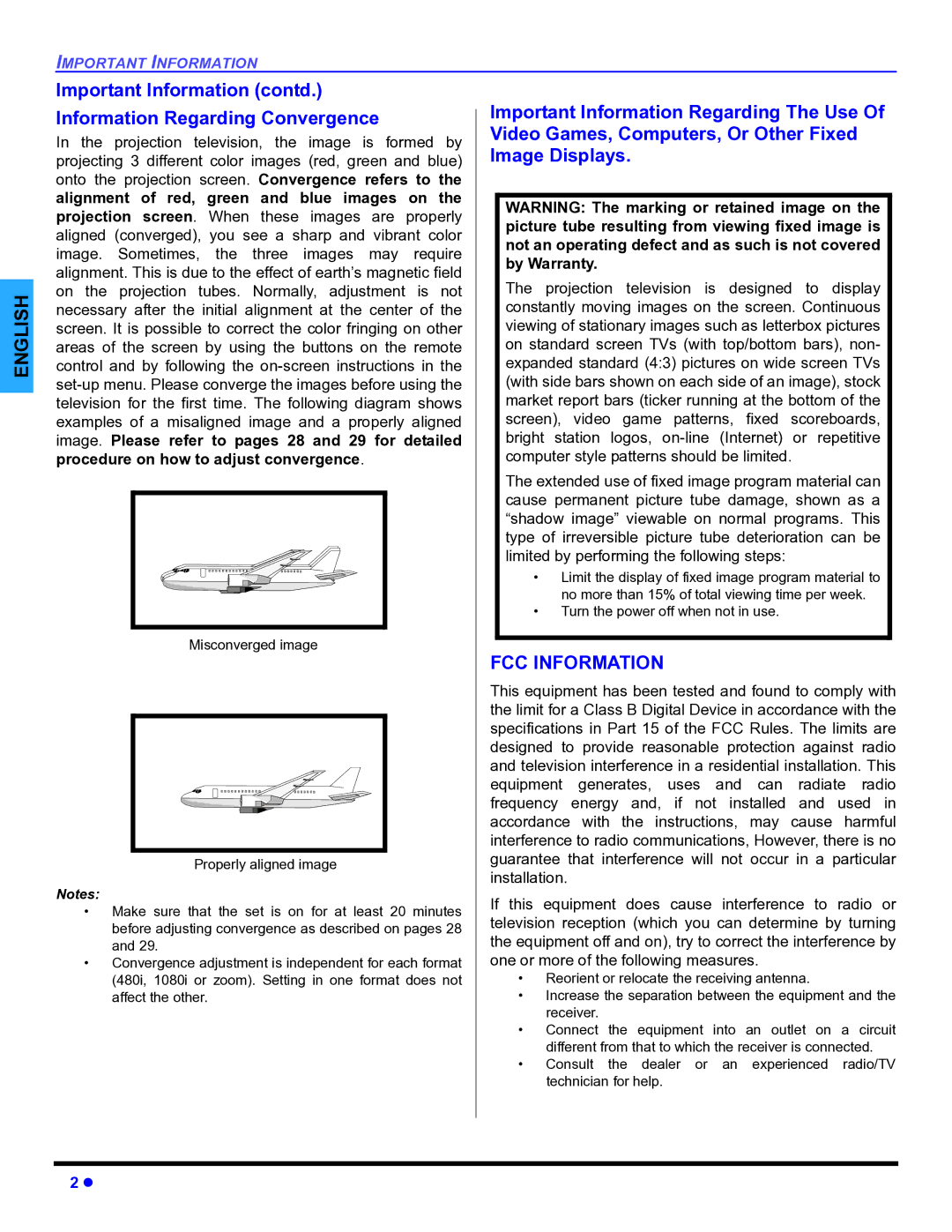
IMPORTANT INFORMATION
ENGLISH |
Important Information (contd.) Information Regarding Convergence
In the projection television, the image is formed by projecting 3 different color images (red, green and blue) onto the projection screen. Convergence refers to the alignment of red, green and blue images on the projection screen. When these images are properly aligned (converged), you see a sharp and vibrant color image. Sometimes, the three images may require alignment. This is due to the effect of earth’s magnetic field on the projection tubes. Normally, adjustment is not necessary after the initial alignment at the center of the screen. It is possible to correct the color fringing on other areas of the screen by using the buttons on the remote control and by following the
Misconverged image
Properly aligned image
Notes:
•Make sure that the set is on for at least 20 minutes before adjusting convergence as described on pages 28 and 29.
•Convergence adjustment is independent for each format (480i, 1080i or zoom). Setting in one format does not affect the other.
Important Information Regarding The Use Of
Video Games, Computers, Or Other Fixed
Image Displays.
WARNING: The marking or retained image on the picture tube resulting from viewing fixed image is not an operating defect and as such is not covered by Warranty.
The projection television is designed to display constantly moving images on the screen. Continuous viewing of stationary images such as letterbox pictures on standard screen TVs (with top/bottom bars), non- expanded standard (4:3) pictures on wide screen TVs (with side bars shown on each side of an image), stock market report bars (ticker running at the bottom of the screen), video game patterns, fixed scoreboards, bright station logos,
The extended use of fixed image program material can cause permanent picture tube damage, shown as a “shadow image” viewable on normal programs. This type of irreversible picture tube deterioration can be limited by performing the following steps:
•Limit the display of fixed image program material to no more than 15% of total viewing time per week.
•Turn the power off when not in use.
FCC INFORMATION
This equipment has been tested and found to comply with the limit for a Class B Digital Device in accordance with the specifications in Part 15 of the FCC Rules. The limits are designed to provide reasonable protection against radio and television interference in a residential installation. This equipment generates, uses and can radiate radio frequency energy and, if not installed and used in accordance with the instructions, may cause harmful interference to radio communications, However, there is no guarantee that interference will not occur in a particular installation.
If this equipment does cause interference to radio or television reception (which you can determine by turning the equipment off and on), try to correct the interference by one or more of the following measures.
•Reorient or relocate the receiving antenna.
•Increase the separation between the equipment and the receiver.
•Connect the equipment into an outlet on a circuit different from that to which the receiver is connected.
•Consult the dealer or an experienced radio/TV technician for help.
2z
